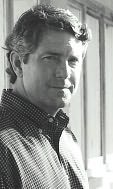- Shopping Bag ( 0 items )
-
All (73) from $1.99
-
New (14) from $4.33
-
Used (59) from $1.99





Overview
Neil White wanted only the best for those he loved and was willing to go to any lengths to provide it—which is how he ended up in a federal prison in rural Louisiana, serving eighteen months for bank fraud. But it was no ordinary prison. The beautiful, isolated colony in Carville, Louisiana, was also home to the last people in the continental United States disfigured by leprosy—a small circle of ...